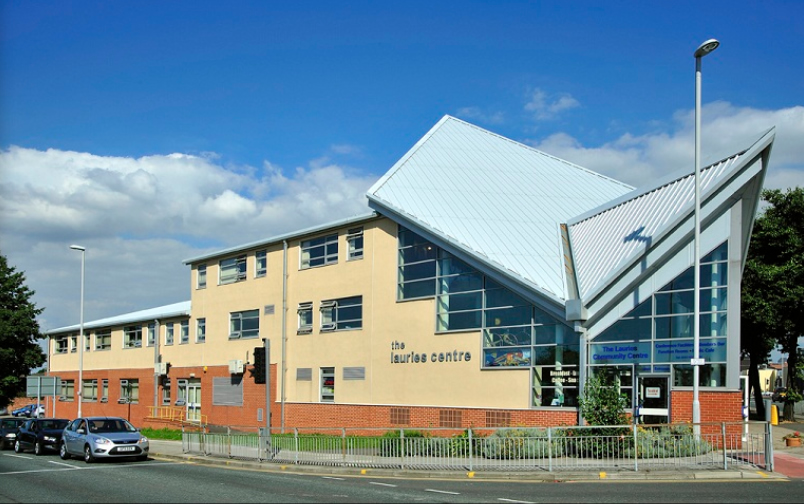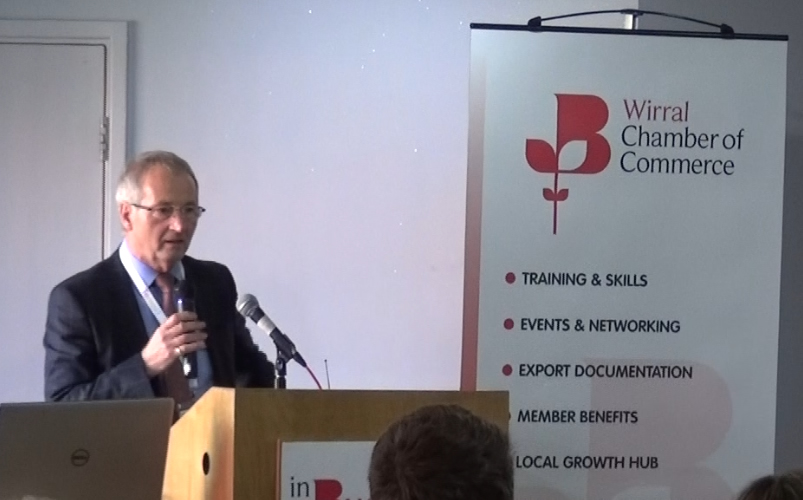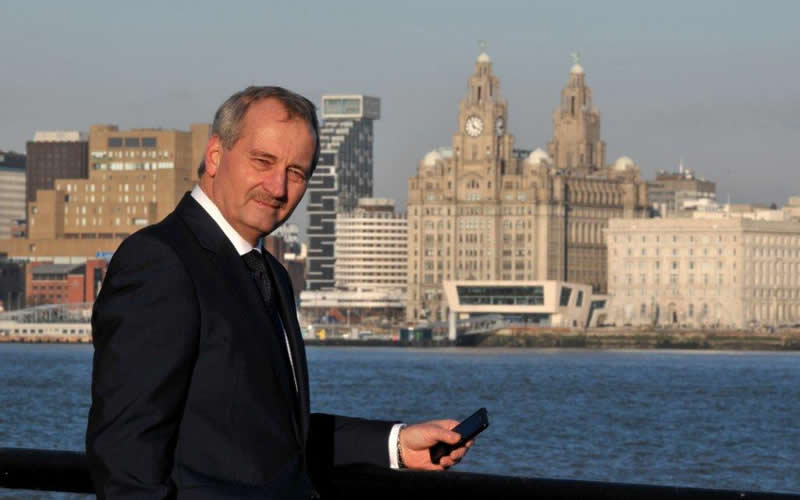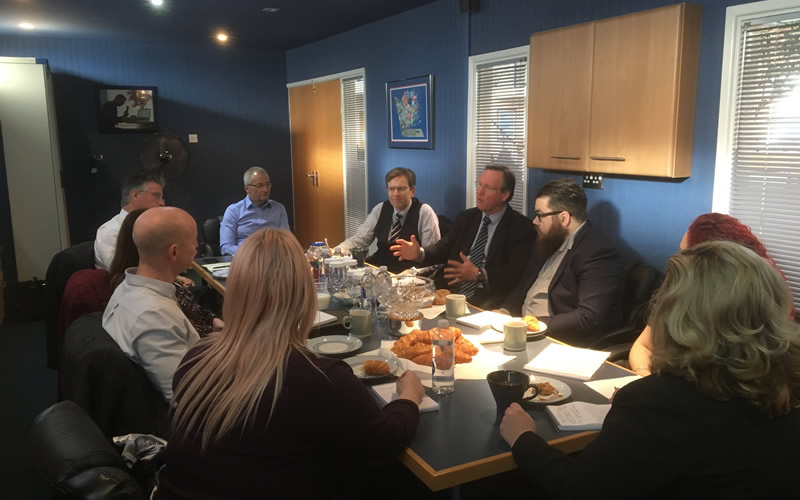Tom Cullen speaks at Wirral Chamber In Business Conference (Video)
Friday, May 4th, 2018 Back to press releases >
The Wirral Chamber of Commerce In Business conference, held on the 29th of March at The Lauries Centre, brought together a number of speakers on the subject of the Liverpool City region's digital infrastructure. Mayor Steve Rotherham was a keynote speaker, and discussed plans to create ultra-fast digital connectivity that he claimed could help take the Liverpool City Region (LCR) economy 'into the stratosphere'. However, other speakers focussed more on the quality of the existing infrastructure, described as 'not fit for purpose' and broadband connectivity as six to eight years behind the times.

The breakfast seminar on the state of the city region's digital infrastructure was the latest in a monthly series of In Business gatherings organised by the Chamber at its headquarters in Claughton Road, Birkenhead. The seminar began with breakfast in the form of bacon rolls, and entertainment from Sophia, a freestyle saxaphone player. it was hosted by Andy Snell, the Chamber's Head of International Business Development, who introducted the main speakers, the Mayor, Mandy Gauge from BT Local Business and Tom Cullen, Managing Director of Digitel Group. This was followed up be a round robin discussion, chaired by Alastair Houghton, Editor of Business Post about the region's digital infrastructure.
Liverpool City Region Mayor Steve Rotherham told the audience of his plans to build on our existing natural and man-made assets to create a gigabit economy that will give us a major economic advantage. His aim is to capitalise on the supercomputer at SciTech Daresbury and the fibre optic link from the USA to the UK — which connects through Southport — to create a fully-connected gigabyte city region, while also developing a renewable tidal scheme on the Mersey.

Tom Cullen, managing director of Wirral-based business telecommunications company Digitel, said: "Digital Disruption is changing all of our lives — not only in terms of our personal lives but also it is turning nearly every traditional business model upside down. It is creating chaos out there. You only have to look on the high street at how many stores that have been in existence for 100 years or more but are now out of business.
"It is creating new companies that are rising to billion dollar valuations and crushing longstanding incumbents that have also been around for 100 years. By 2021, 41 per cent of what are Fortune 500 companies will not be in the Fortune 500, but will be displaced by digital disruptors."
He cited companies like Airbnb, established in 2008 and now with a market capitalisation of $31 billion, making it the second biggest hospitality company in the world after Marriott at $38 billion — despite the fact that is does not own a hotel.
Electric car company Tesla is on a level market cap with General Motors, despite having only sold 250,000 units since its launch in 2003, while in entertainment Netflix at $70 billion is well ahead of nearest competitor Fox at $52 billion, and in transportation Uber at $69 billion dwarfs nearest competitor Avis at $2.6 billion.
"You get an idea from this how the internet scales businesses massively," said Tom. "Companies that have been around for ten or fifteen years are taking over from traditional businesses. For SMEs the bandwidth available is not fit for purpose. It may be improving but we are behind the curve — we are dealing with broadband services that are six to eight years out of date. All of the stuff that is offered for SMEs is below par. It is all on contended lines, and distance sensitive, and it isn't good enough, not for what's going to happen.
"To meet both existing and future demand we need to start delivering in gigabits, not megabits, and it needs to be affordable for SMEs. A gigabit city region will deliver massive economic, commercial and social benefits for the city region."



